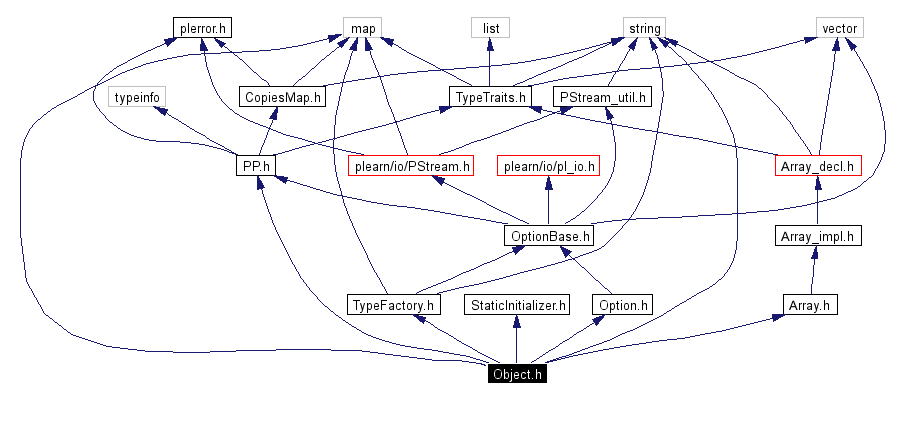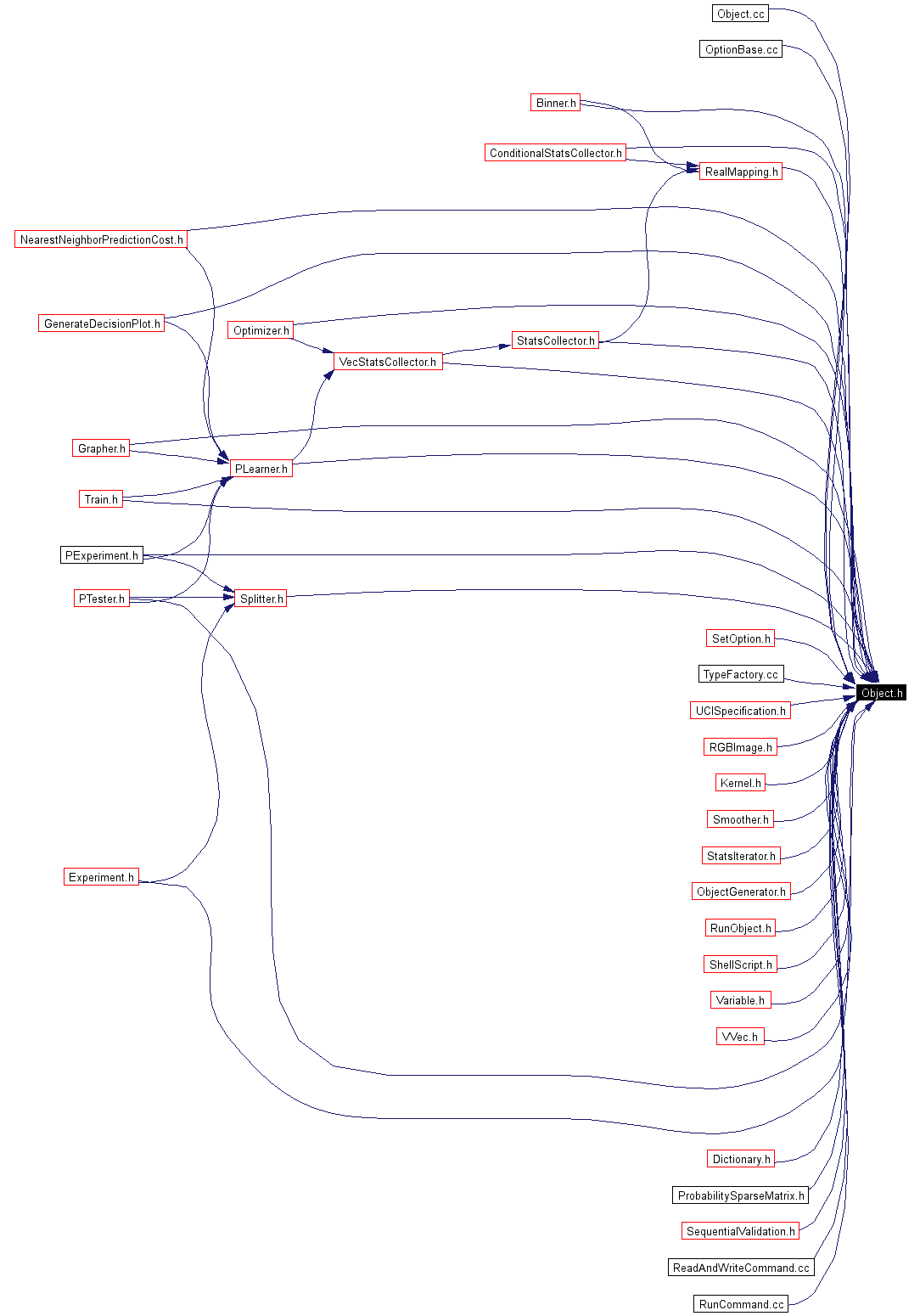
#include <map>#include <string>#include "PP.h"#include "StaticInitializer.h"#include "Array.h"#include "TypeFactory.h"#include "Option.h"Include dependency graph for Object.h:

This graph shows which files directly or indirectly include this file:

Go to the source code of this file.
Namespaces | |
| namespace | PLearn |
Defines | |
| #define | PLEARN_DECLARE_OBJECT(CLASSTYPE) |
| #define | PLEARN_IMPLEMENT_OBJECT(CLASSTYPE, ONELINEDESCR, MULTILINEHELP) |
| #define | PLEARN_DECLARE_ABSTRACT_OBJECT(CLASSTYPE) |
| #define | PLEARN_IMPLEMENT_ABSTRACT_OBJECT(CLASSTYPE, ONELINEDESCR, MULTILINEHELP) |
| #define | PLEARN_DECLARE_TEMPLATE_OBJECT(CLASSTYPE) |
| #define | PLEARN_IMPLEMENT_TEMPLATE_OBJECT(CLASSTYPE, ONELINEDESCR, MULTILINEHELP) |
| #define | DECLARE_OBJECT_PTR(CLASSTYPE) |
| #define | DECLARE_TEMPLATE_OBJECT_PTR(CLASSTYPE) |
| #define | DECLARE_OBJECT_PP(PPCLASSTYPE, CLASSTYPE) |
Functions | |
| void | printobj (PLearn::Object *p) |
| Useful function for debugging inside gdb:. | |
|
|
Value: The following macro should be called after the declaration of a new SmartPointer derived class. It will declare a number of inline functions used to serialize the new smart pointer type |
|
|
Value: The following macro should be called just *after* the declaration of an object subclass. It declares and defines a few inline functions needed for the serialisation of pointers to the newly declared object type. |
|
|
|
|
|
Value:
|
|
|
Value: One of the following macros should be called in every Object subclass. The DECLARE macro in the class's declaration in the .h, and the corresponding IMPLEMENT macro in the class's definitionin the .cc They automatically declare and define important methods used for the build, help, and serilisation mechanism. The ABSTRACT versions of the macros should be used for "abstract" classes (classes that are only meant to be derived, and are non instantiable because they declare pure virtual methods, with no definition) The IMPLEMENT macros take two extra string arguments (other than the class's type): a short one line description of the class, and a multiline help. |
|
|
Value:
|
|
|
Value:
|
|
|
|
|
|
|
|
|
Useful function for debugging inside gdb:.
Definition at line 506 of file Object.cc. References PLearn::PStream::endl(). |
 1.3.7
1.3.7